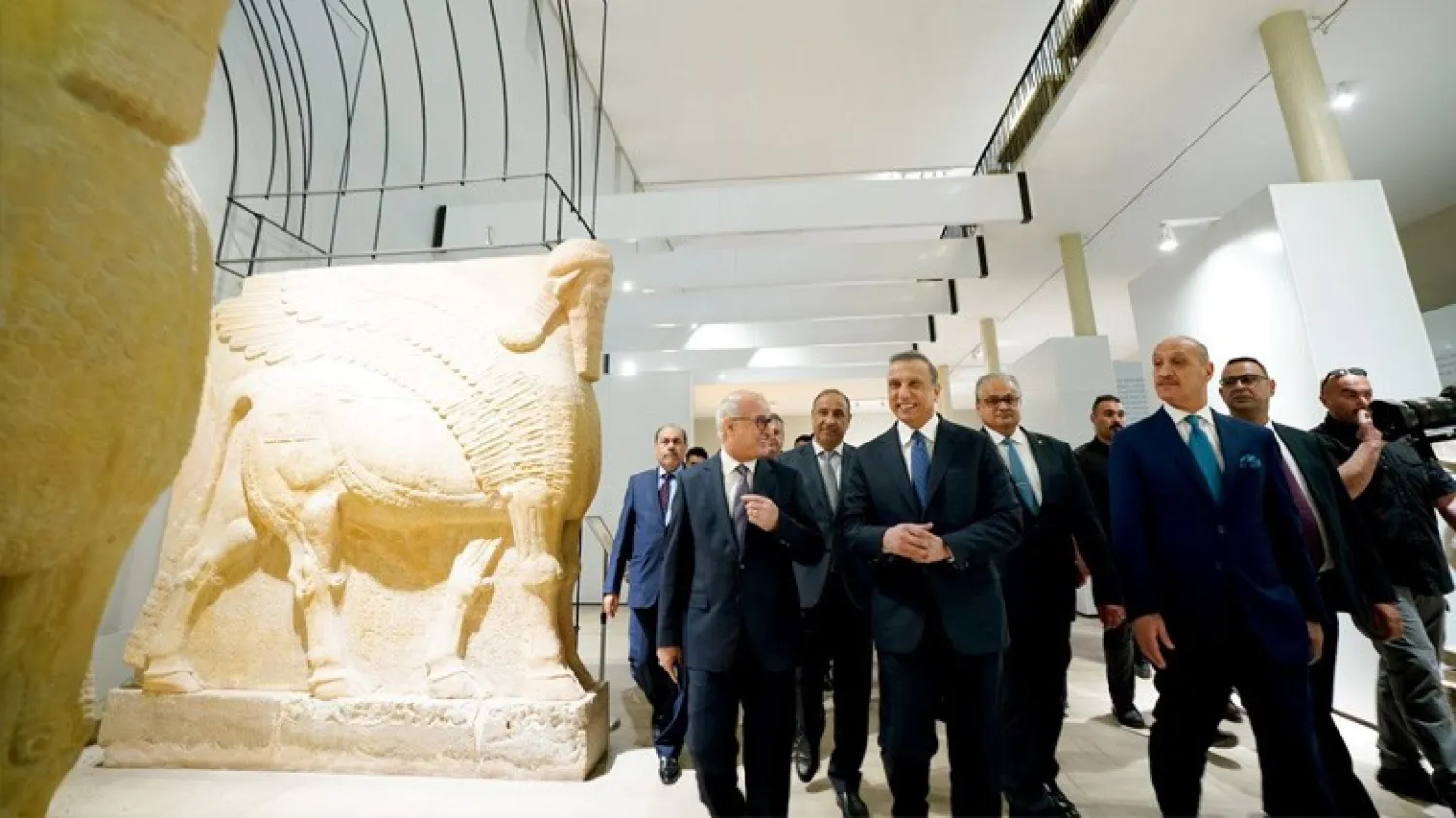Iraqi Prime Minister Mustafa Al-Kadhimi stressed on Sunday the need to renounce violence and extremism and to seek unities and honorable values that contribute to evolving people and nations.
The PM on Sunday inaugurated the Iraqi National Museum after immense rehabilitation and maintenance.
Kadhimi said in a statement that the ceremony was planned on March 6 to coincide with the International Day for Tolerance and with the first anniversary of the historic Papal visit to Iraq and his historic meeting with Supreme Reference, Sayyid Al-Sistani.
“We are proud of our history, our cultural heritage, our ancestors and our great men, and we cherish this land and what it has produced over thousands of years,” the PM was quoted by the German news agency as saying.
He said a museum is the mirror of the cultural and civilizational heritage of any country, adding that special care should be provided to the museums to preserve Iraq’s history.
“Some countries wish to possess Iraq’s history, legacy and civilization,” Kadhimi said, calling on Iraqis to spare no efforts for protecting their heritage, which has contributed throughout history, to developing the concept of humanity and human behavior.
The PM also opened on Sunday the exhibition of Iraqi antiquities recovered from the US, the Netherlands, Japan, Italy and Lebanon.
He praised the efforts made by the Culture Ministry and other concerned authorities in preserving Iraq's antiquities and heritage.









